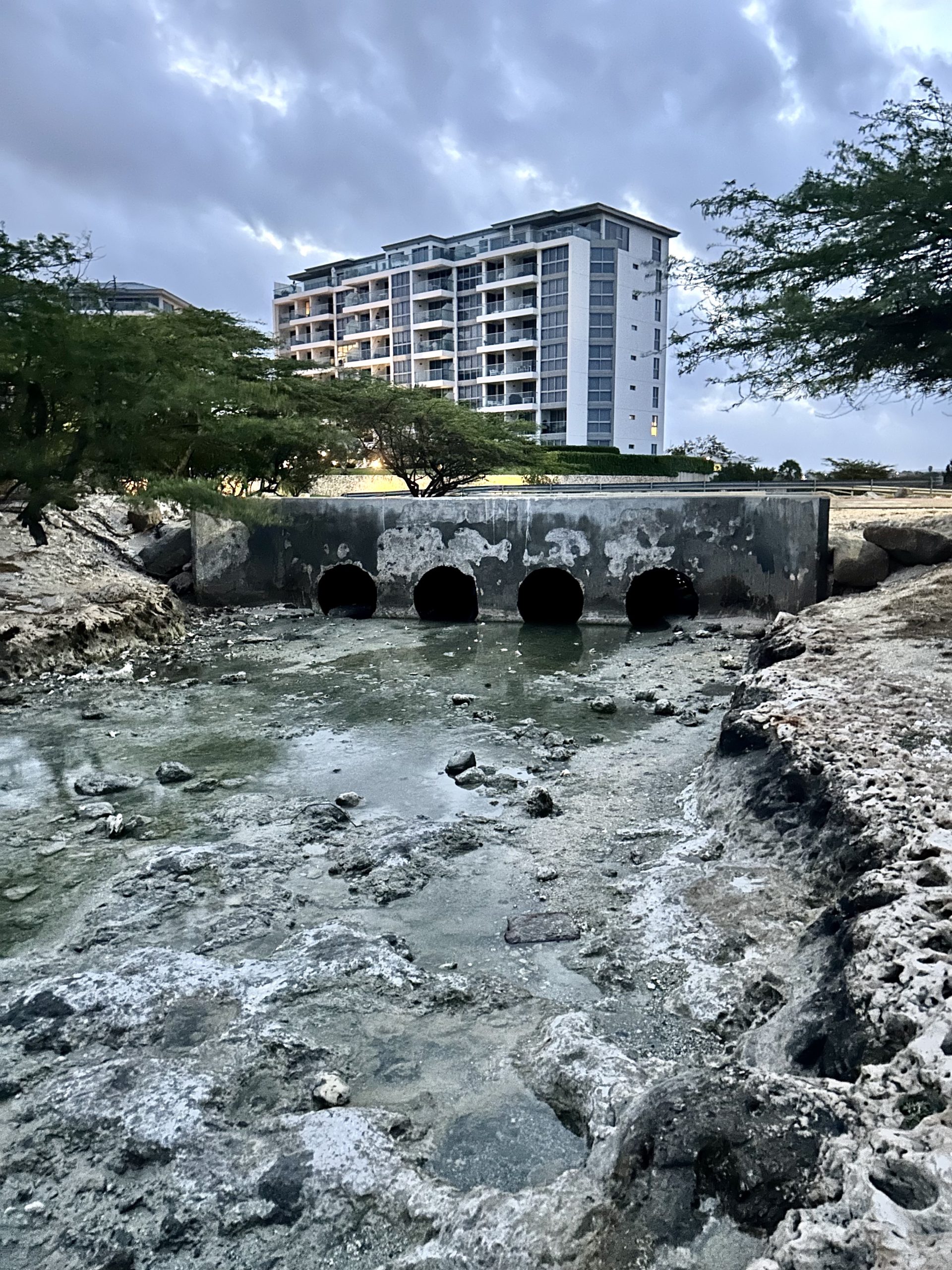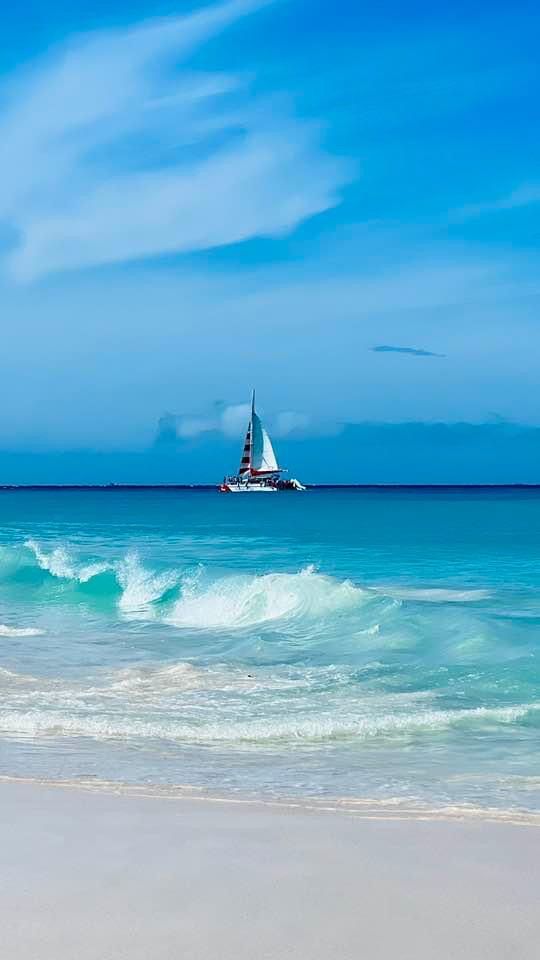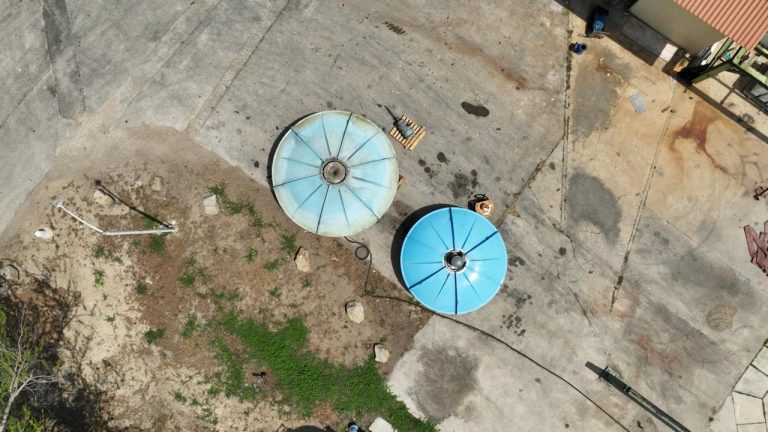Part II “One Stinky Island”: Free sewage or a business case?
Introduction:
Last week, I wrote a Stinky Column. This one ay stink as well.
The column discussed a rather significant sewage disposal problem that we are facing. One of the key raw materials for our tourism product, our beaches, and Eagle Beach, is at great risk. Yet the community can see little to no action from the government. The silence is deafening. Our minister in charge of the environment seems undisturbed. The root cause is ingrained in the lack of (i) vision, (ii) engineering management; and (iii) funding. Science or logic will then tell us that we need to solve (i), (ii), and (iii) to solve the problem. Last week’s column triggered a reaction on various social media platforms. Some expressed outrage, and others prompted possible solutions. In that process, I ran into a law that actually – believe it or not – regulates the collection of fees for using the sewage system. It is called “Retributiebesluit rioolafvoer”. The Retribution Decree for Sewer Disposal (“RDSD”).
There is a law!
We realized we needed a more comprehensive approach to waste disposal when we looked at the sewage problem plaguing communities. Imagine my surprise when I discovered that a law demands retribution for those with the privilege to be connected to the sewer systems – like most of our hotels. The mere existence of this law raises many questions:
- Why had I never heard of this?
- Why haven’t our leaders mentioned this as a source of funding?
- Who is enforcing this? (Or not?)
- Where is this money going?
This law states that property owners must pay a yearly fee to use the sewage system. This law aimed to ensure that those who directly profit from this vital infrastructure contribute to the maintenance and development of it.
A closer look
How does this law work? The RDSD states that property owners must pay a yearly retribution fee as soon as they are connected to the sewage system. This is a shocking fact. That means that, in good theory, all the property owners flushing their toilets into the Bubali Plas are paying retribution for this privilege. This means that we should have a or at least one revenue stream from the RSD for the Bubali Plas (or at least are supposed to).
The law reveals that retribution fees are calculated based on the ground tax (“grondbelasting”) due by the property owner. Now we all receive our ground tax assessments in the mail. Grab yours and take 0.1% of the assessed value, and this will give you what you, as a property owner, would have to pay if you are connected to the sewage. If you are not connected to the sewage, you pay a service provider like Ecotech for the service.
A business case
The island’s most expensive commercial real estate is on the West strip. The high-rise-, the low-rise hotels, time-share properties, and string of luxurious condominiums (“Big Users”). I don’t have any exact numbers, but for illustration purposes, I will assume that the average ground tax value of the Big Users is Afl. 175,000,000 (AFl. 175M). Based on this:
Ground tax value: Afl. 175,000,000 average
0.1% of ground tax value Afl. 175,000 per year
20 Big Users = 20x Afl. 3,500,000 per year
Afl. 175,000 per big user would then be the average contribution to the treasury. If we have 20 big users, the revenue stream in our business case would be around Afl. 3,500,000 (or Afl. 3.5M) per year. With this figure getting a loan for around Afl. 9M shouldn’t be a problem to install new and modern equipment to treat the water.
Ok, so we have seen what the potential revenue is. I am a mere columnist and don’t have any insight into the following:
- amortization expenses
- operational expenses
- review expenses
However, with creativity, technology optimization, engineering, accounting, and the right investors or financing, I am confident that we can tackle the sewage issue and disappear. If more money is needed to invest, we can generate another revenue stream by selling the treated water at a discount back to the Big Users and to others for landscaping or agricultural purposes. Mind you, I am not advocating adding more expenses to our hotels, but I am sure they are either doing their part or are willing to do so, provided the system works. I will go even. Further, I am confident that the hotels can get systems installed to treat and recycle their wastewater on-site so that they do not have to dependent on the RWZ.I
Challenge
It would be fun to challenge the minister of environment du jour to split the Bubali Plas in half and let the government and “my dream team” manage the other. At the end of a predefined period, we each drink a glass from our respective halves in public. I think I would be enjoying a nice, clean glass of water. The other side may have to decline to avoid serious health issues.
Do you want to swim?
While writing this, I ran into a 2003 report from the Department of Nature and Environment. I learned that 30% of the island’s sewage is (supposed to be) processed by the RWZI, and 6% is dumped into the sea untreated. Think about that next time you go for a swim.
Where is the money?
Let’s park the business case discussion and the untreated sewage that spills into our sea for a moment and look at a more relevant issue. Where is the money? If the government is entitled/obligated by law, the RDSD to charge this money, the following questions come to mind:
- Is the government enforcing the collection of sewage from the Big Users? If not, why?
- How much money is this generating per year?
- Is this money going into the general treasury?
- Is this money going into a special (environmental) fund?
- Is this money being used exclusively for the RWZI?
- What are the annual operational-, amortization, and review expenses for the RWZI?
In light of the urgent nature of the problem of sewage we have discussed previously, it is impossible to ignore the question of how this law will be enforced. How is compliance monitored? What are the measures in place to ensure property owners meet their obligations? These questions are unanswered, and we must look into the mechanisms used to enforce the RDSD charges. One would hope this law will be enforced vigorously in a society struggling with the sewage problem. There may be specific procedures, such as retribution collection mechanisms, regulatory agencies, or government oversight, to ensure compliance with the law. However, the effectiveness and rigor of these enforcement mechanisms still need to be discovered. Unknown, at least to me and perhaps to many others. I asked around over the weekend, but no one knew about this law.
Who is responsible for collecting?
The relevant question, of course, is who is responsible for collecting this retribution. The answer follows from the RDSD is the minister of Finance. Once the minister of Finance generates the sewage chargers, the Tax Collector (“Ontvanger der Belastingen”) collects the retribution. So I guess the minister of Finance is the one that can answer the questions I raise.I would imagine that as the one responsible for our finances, this collection should be a high priority but is it?
Another way
Hotels can use some systems to reuse and recycle water in an odorless and effective manner. These systems are known as water reclamation or water recycling systems, and they are designed to process and treat wastewater generated in the hotel for use in non-potable purposes. After being treated, the water can be used for various non-potable purposes within the hotel. For example, it can irrigate landscaping, flush toilets, run laundry, or for cooling towers. By implementing water-recycling systems, hotels can reduce their dependence on local water supplies and sewage disposal. These technologies can include membrane filtration and ultraviolet disinfection. They may also use activated carbon filters, advanced oxidation, or membrane filtration. These processes remove contaminants, reduce odors, and produce high-quality recycled water. Hotels can reduce their impact on the environment by implementing water recycling systems. They can also demonstrate their commitment to sustainable practices and water management and reduce their dependency on the government’s ability to manage the Bubalis Plas. I don’t have insight into the cost, but a local engineer working abroad reached out and told me about such a solution in the region he is working on. The science is there. Hotels that pursue this should be supported by the government, maybe with incentives, or maybe it should be mandatory.
Conclusion
The retribution Decree for Sewer Disposal Charges (RDSD) has revealed a surprising facet of our sewage problems. It is shocking to learn that there is an existing law to collect fees for those who use the sewer system, especially the Big Users. Many questions are still unanswered and need the attention of the Finance Minister and the Environmental Minister. Our Tourism Minister needs to be alert and proactive. This affects our Government, including our Prime Minister, even if the latter appears to be the least informed on most subjects. Why have our leaders not mentioned this law as a possible funding source for addressing the sewage problem? Is the money being collected? If not, why? How is the money collected allocated? It would show good governance and transparency if the Minister of Finance answered these questions and clarified the application and use of fees collected. There must be robust mechanisms for collecting RDSD fees, monitoring compliance, and a transparent allocation of funds. Similarly, the Minister of Environment should step up and tell the community how and when he will solve this issue, or if he will let this simmer, hope nothing happens and pass it on to the next minister to solve.
The government must come forward and explain. It is time to act, enforce the laws, and create a cleaner and healthier future for us, the Arubianos, our children and their children, and our guests, the tourists.














